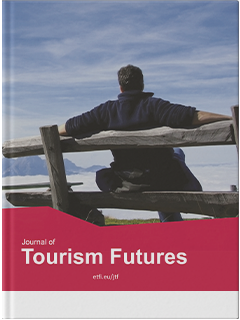内在约束与环境约束对残疾游客旅游目的地行为意向的影响:习得性无助的中介作用
IF 5.8
Q1 HOSPITALITY, LEISURE, SPORT & TOURISM
引用次数: 3
摘要
目的本研究考察了习得性无助的前因,即内在和环境的约束和后果,即应用“习得性无助理论”在残疾人(PwD)旅游背景下的旅行意向和期望。设计/方法/方法该调查方法用于收集过去12个月内访问/旅行过任何旅游目的地的209名身体残疾人士的数据。采用结构方程建模技术对数据进行分析。研究结果表明,内在和环境约束对习得性无助有积极影响。因此,习得性无助对旅游意愿产生负面影响,并对残疾游客对旅游目的地的期望产生积极影响。此外,习得性无助是内在约束和前往旅游目的地意愿之间的中介。原创性/价值尽管从习得性无助的概念视角研究的大量关联文献得到了广泛认可,但缺乏研究旅行限制、习得性无助、残疾人意向及其在旅行目的地背景下的期望之间的联系的文献。本文章由计算机程序翻译,如有差异,请以英文原文为准。
Linking the intrinsic and environmental constraints with PwD tourists' behavioral intentions toward a travel destination: mediating role of learned helplessness
PurposeThe present study examines the antecedents of learned helplessness, i.e. intrinsic and environmental constraints and consequences, i.e. intention to travel and expectation in the context of people with disability (PwD) tourism context by applying the “Theory of Learned Helplessness”.Design/methodology/approachThe survey method was used to gather data from 209 physically disabled people who had visited/traveled to any tourist destination in the past twelve months. Structural equation modeling technique was used to analyze data.FindingsThe findings reveal that intrinsic and environmental constraints positively influence learned helplessness. Consequently, learned helplessness negatively effects intention to travel and positively affects expectation of PWD tourist' toward a travel destination. Furthermore, learned helplessness contributed as a mediator between intrinsic constraints and intention to travel toward a tourist destination.Originality/valueEven though the body of literature on associations studied pertaining the conceptual lens of learned helplessness is widely recognized, there is dearth of literature investigating the connections between travel constraints, learned helplessness, PwDs intention and their expectation in travel destination context.
求助全文
通过发布文献求助,成功后即可免费获取论文全文。
去求助
来源期刊

Journal of Tourism Futures
HOSPITALITY, LEISURE, SPORT & TOURISM-
CiteScore
15.70
自引率
6.00%
发文量
64
审稿时长
34 weeks
期刊介绍:
 求助内容:
求助内容: 应助结果提醒方式:
应助结果提醒方式:


